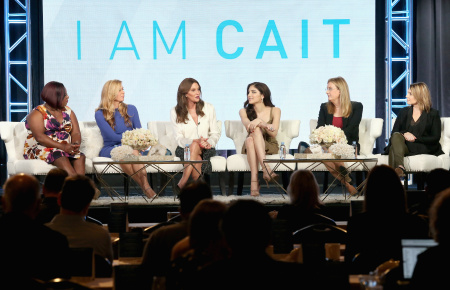![]()
California Counts; Credit: Alain McLaughlin
It's no secret that California has low voter turnout. What will it take to bring people to the polls? We traveled to San Francisco Tuesday night to chat with community members and political analysts about what's holding Californians back in weeks leading up to the state primary June 7.
The town hall was moderated by Larry Mantle, host of KPCC’s AirTalk, and Scott Shafer, senior editor of KQED’s California Politics and Government Desk. It was hosted by California Counts, a collaboration with KPCC in Los Angeles, KQED in San Francisco, Capital Public Radio in Sacramento and KPBS in San Diego.
We were joined by a panel of five guests from across the political spectrum. They fielded questions from the audience on topics that ranged from why voters are undecided in California's Senate race to the future of the Republican party. Here's a recap. Click on the audio to hear more.
On California's US Senate race
In a Field Poll last month, 48 percent of likely voters in the race to replace retiring Sen. Barbara Boxer were undecided on how they'd vote. The poll showed the top candidates include California Attorney General Kamala Harris and Orange County Congresswoman Loretta Sanchez, both Democrats.
But many voters still don't know who the candidates really are, said Mark DiCamillo, senior vice president of Field Research Corporation and director of the Field Poll.
(Here's a list of the 34 candidates you'll see on the ballot.)
“I think this race is still wide open," he said.
DiCamillo noted that voters are more familiar with Democratic candidates than others in this race. So panelists were asked: Why aren't top-tier Republicans running in California's Senate race?
It's pretty simple, said said Harmeet Dhillon, vice chair of the California Republican Party. Because they like their current jobs.
On making a mistake at the polls
Mindy Romero, founding director of the California Civic Engagement Project at UC Davis, said Californians care about local issues, but they just aren't drawn into those races.
The panel agreed that it's the media's responsibility to pull the public out of the presidential horse race and to drum up buzz around local candidates instead.
Plus, there's a downside to Democrats having more control in California, according to Lisa Garcia Bedolla, Chancellor's Professor of education and political science at University of California. She made the argument that because Democrats have a hold in California, it makes it even more confusing for voters. Why? Because it forces them to learn about policy.
"People care about voting and care about making a mistake," she said, adding that voters need better access to information to drive them to the polls.
A Democratic hold also allows extra room for tension, said Fiona Ma, chairwoman of the California State Board of Equalization.
"For the most part, we don’t focus on the party, we focus on the issue — so it gets really polarized," she said.
On appealing to Latinos
Of the estimated 6.7 million eligible but unregistered voters in California, the majority are Latino and Asian-American.
Romero said rhetoric has to change if the GOP wants to attract more Latinos. She said Latinos voted Democrat in 1994 when Prop 187 was approved. And they never looked back. (The controversial ballot measure denied public services — such as public education and healthcare — to those living in the country illegally.) “That has stayed and stuck,” she said.
Sean T. Walsh, former adviser to California Governor Arnold Schwarzenegger, agreed that the Republican Party needs to rework its message.
"We're selling a message in California that is too much akin to the Midwest or South," he said.
To hear more — on Prop 13, the two party establishment and the timing of California's primary — click on the audio above.
Guests
Mark DiCamillo, senior VP of Field Research Corporation and director of the Field Poll
Lisa Garcia Bedolla, Chancellor's Professor of education and political Science at University of California, Berkeley
Harmeet Dhillon, vice chair of the California Republican Party and 2016 RNC National Committeewoman-elect
Mindy Romero, founding director of the California Civic Engagement Project at UC Davis
Fiona Ma, chairwoman of the California State Board of Equalization
Sean T. Walsh, media and political strategist and member of the State Wide Leadership Council for the Public Policy Institute of California; he is a former adviser to California Governors Arnold Schwarzenegger and Pete Wilson
Series: California Counts
California Counts is a collaboration of KPBS, KPCC, KQED and Capital Public Radio to report on the 2016 election. The coverage focuses on major issues and solicits diverse voices on what's important to the future of California.
Read more in this series and let us know your thoughts on Twitter using the hashtag #CACounts.
![]()



















